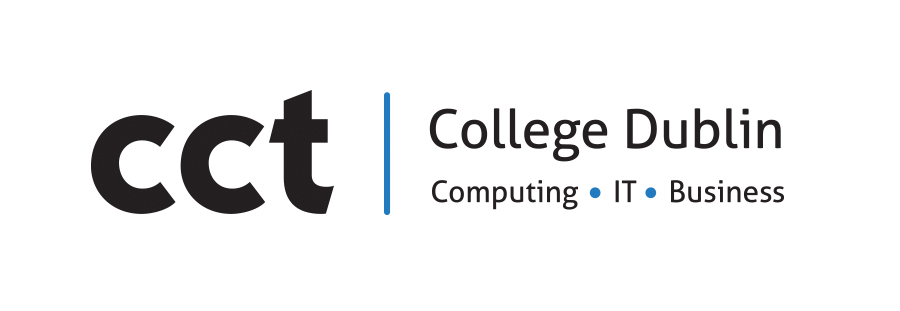The overall aim of this programme, leading to the (Major) award of Higher Diploma is to provide learners with the necessary theoretical and practical skills, knowledge and competence, to gain a comprehensive, strong and specialised, foundation and practical understanding of the area of computing.
On successful completion of this programme, graduates should be able to successfully secure professional roles at entry to mid-level positions in Computing and Computing-related industries and progress to leadership or research roles using skills related to those learned in the programme curriculum. The programme consists of 60 credits of taught modules.
The Higher Diploma in Computing is a postgraduate programme designed for learners with either a level 7 degree in ICT, which is normally 5 years old or above, or an level 8 degree in a subject with a strong numerate, IT, or technical element such as accounting, engineering, science, digital media, etc. The programme enables learners to achieve the knowledge, skills and competencies required to earn a level 8 award in computing.
The programme aims to provide an opportunity for learners with level 7 degrees in ICT, to up-skill their knowledge and gain a competitive advantage in the computing sector. Additionally, the programme aims to provide an opportunity for learners with level 8 degrees outside the computing arena to reskill, moving their career trajectories to align with the computing sector.
This programme is delivered over 2 academic semesters, 1 calendar year.
The Higher Diploma in Science in Computing is a one calendar year higher diploma programme. The Irish NQF Level of this course is Level 8.
Semester 1
Introduction to Computing
The aim of this module is to provide students with the foundational knowledge of computing to facilitate their progression through the programme. It will address the basics of computer components and architecture, operating systems and networking. It will also address the fundamentals of human-computer interaction and data modelling. The module is designed to provide a foundation for more advanced
modules in Semester 2, particularly in the areas of Web Development, Software Development and Networking.
Introduction to Programming
The aim of the module is to provide students with the knowledge of the fundamentals of programming and the capacity to write simple programmes to solve small-scale problems.
Maths for Computing
This module aims to develop students comprehension and skills in logic and computational thinking. The module will introduce learners to the concepts, notations and operations of mathematics that are fundamental to working in the field of computing.
Operating Systems and Architecture
The aim of this module is to appraise modern computer systems in terms of architecture, operating system and communications capability. The learner will be able to describe and illustrate the relationship between underlying hardware and the useful features of an operating system and detail how each component carries out its allotted function and relates to other components.
Databases
The aim of this module is to develop learners who:
1. Can apply structured database design principles at the conceptual, logical and physical levels.
2. Are capable of translating a set of real-world client requirements into a well-structured database
structure using SQL.
3. Can identify and resolve constraint violations in existing datasets.
4. Can take transaction processing and concurrency control issues into account when selecting a
database management system for a given set of requirements.
Semester 2
Web Development
This module will equip learners with the skills needed to plan, design, develop and publish a progressive web application using modern development techniques.
Software Development Fundamentals
This module aims to provide learners with knowledge of the main components of the Software Development Process and techniques to enhance the quality of the Software Development Process. Students will develop their practical understanding and appreciation of frameworks for the Software Development Process through a case study approach.
Algorithms and Constructs
The aim of this module is to:
Enhance the Learners problem-solving skills, through the comprehension and evaluation of common Data Structures and Algorithms and to provide learners with a fundamental understanding of computational complexity and optimisation.
Networking & Virtualisation
This module will lead learners through the fundamentals of networking from basic Local Area Networks to Enterprise scale networks and the services that they support. The aim of the module is to develop learners’ knowledge, skill and competence to enable them to build, maintain, and troubleshoot their own networks in both a physical and in a virtual format.
Project Skills & Professionalism
The module aims to:
• Enhance learner knowledge and understanding of legal and ethical issues, professional standards and expectations and apply this to real-world scenarios
• Consolidate and develop the learner’s ability to think critically and apply creativity in designing and creating an artifact, drawing upon learning from across the programme.
• Develop the learner’s capacity to justify their decisions, reflect upon action taken (by themselves or others) and identify alternative approaches or solutions.
• Provide opportunities for learners to evidence their capacity to communicate effectively, work under their own initiative and in collaboration with others, and evidence a commitment to personal development.
CCT will utilise a variety of assessment methods to help ensure that the learning outcomes of each subject will be achieved, for example, Written Examination compiled of long or short term essays, Objective Tests, Presentations, Group Projects, Practical Assignments, Oral Examinations and final examinations where applicable.
CCT constantly encourages feedback from its learners on a formal and informal basis. Learners have an opportunity to give informal and formal feedback on the college, programme, faculty, facilities, administration, student services, admissions and course induction through verification surveys, such as:
- Learner Verification survey
- Student Services and Support survey
- Admissions and Course Induction survey.
Learners also receive ongoing feedback on their progress from their faculty in person, through Moodle, and through assessment correction. At the end of each semester all learners receive module results, along with more detailed formal progress feedback.
On successful completion of the programme, graduates will be entitled to transfer or progress to a range of level 8 (transfer to) and level 9 (progress onto) programmes in a related field, at the discretion of the programme provider.
Transfer options may include any level 8 Higher Diploma in Science in Computing related programme.
Graduates may be eligible to further their studies at level 9 (Postgraduate Diploma or Masters) in Computing or one of many Computing-related disciplines (in Ireland or abroad), such as Computer Science, Computational Science, Information Systems, IT Management, Technology and Innovation Management, Information Security & Digital Forensics, Information Systems Processes, and others.
CCT has identified entry criteria and processes that will enable it to determine an applicant’s potential to succeed on the proposed programme.
Learners submitting a direct entry application to the proposed programme should provide supporting documentation for application consideration, in line with any one of the below Access arrangements or minimum entry requirements:
Applicants should submit an application with evidence of the following:
a) A Level 7 Ordinary degree award in the discipline of Information Communications Technology (normally 5 years old or greater)
OR
b) A Level 8 Honours degree award in a cognate discipline of Information Communications Technology,
OR
c) Submission of an application based on Recognition of Prior Experiential Learning
For applicants whose first language is not English, evidence must be provided of English Language proficiency equivalent to or greater than B2+ in the CERFL. IELTS, TOEFL, Cambridge etc. will be accepted as evidence for equivalence assessment purposes.
Applicants may have limited, narrow, or no experience in computing. In cases where an applicant is experienced and may be granted exemptions, this will be managed in accordance with the CCT policy and, in all cases, a minimum of 60 credits of new learning must be successfully completed in order to receive the award of Higher Diploma.
Janaina Miranda – Higher Diploma in Science in Computing
Janaina pursued the Higher Diploma in Science in Computing to make the move from Journalism to IT and is now working as a Software Automation Engineer for an international company.
We are hosting a number of events in the lead up to the next academic year to give prospective students the opportunity to find out more about their course and the College. At the moment these events are virtual and you can pre-register here.
You can also make a safe socially distanced 1-2-1 appointment with an Admissions Advisor in the College campus building here from 9am-5pm Monday to Friday.
All QQI accredited programmes of education and training of 3 months or longer duration are covered by arrangements under section 65 (4) of the Qualifications and Quality Assurance (Education and Training) Act 2012 whereby, in the event of the provider ceasing to provide the programme for any reason, enrolled learners may transfer to a similar programme at another provider, or, in the event that this is not practicable, the fees most recently paid will be refunded.


